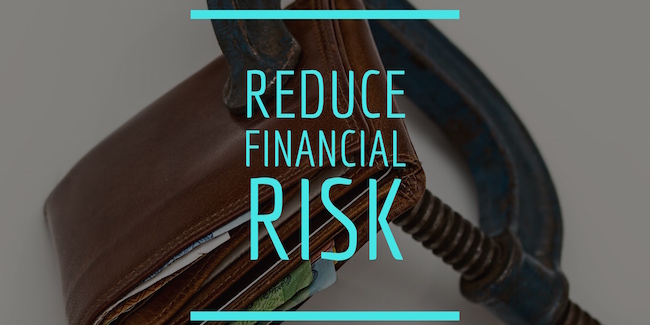There’s no doubt that starting a new business has financial risks.
Statistics differ on how many businesses fail in the first year or two, but it’s clear that more businesses fail than those that survive the first few years.
If you are an entrepreneur considering starting a new business, what can be done to improve those odds? Specifically, how can entrepreneurs reduce the financial risks of a new business? Here are some things to consider doing to help reduce the financial risks if you’re starting a new business.
Table of Contents
ToggleDevelop a Solid Plan
One of the first steps to help entrepreneurs reduce the financial risks of a new business is to develop a business plan.
Before you jump in with both feet, you need to know how much time and capital you are going to be investing in your new business. In addition, market research should be done. This gives you an idea of whether or not your new business has a chance at success or ends in failure landing you in the poorhouse.
Perform Quality Control Tests
You should implement customer service reviews of your products or services before offering them on a wide scale. Have a test group or beta test so you can improve them before your real launch. This will give you a greater chance of success in your venture. It help you avoid launching a product that is going to need major work in order to be a viable product.
Keep Good Records
Establish a record keeping system that works from the very beginning of your new enterprise. If you create a filing system and keep up with paper work, it can save you both time and money when it’s time to pay your bills or file your taxes.
Limit Loans
If you must start out with a business loan, make it as low as you can comfortably manage while still providing enough capital and cushion to ensure success.
That may sound vague, but the amount you need to borrow depends on your own unique financial situation and what type of business you are starting. To reduce your financial risk, only take out a loan if you need to, and try to keep it as low as you can. If it is possible to fund your business without loans, that would be ideal to reduce your financial risks.
Keep Accounts Receivable Low
In order to stay in business, you need to collect on whatever product or service you are selling. Keep track of your accounts receivable and make sure your customers are paying invoices on time. Your success or failure depends on the ability to bring the money into your cash flow.
Diversify Income
Whenever possible, have income from more than one source. If your business doesn’t make it, having a backup plan to keep you out of bankruptcy is good business sense.
Buy Insurance
Purchase insurance against death, disaster, and any other thing you feel could potentially jeopardize your business. Although it will cost you some money to buy insurance, the peace of mind it brings is well worth the cost if it protects you from losing everything.
Save Money
Save as much money as you can. Build up some cushion as extra “insurance” in case disaster befalls your business and you have to close shop. This means you may need to focus on improving your personal finances and having your own personal emergency fund before you start a business.
As an entrepreneur, you can’t do anything about the number of new businesses that fail each year. Nor can you 100% guarantee that your own success will succeed. However, you can take steps to reduce the financial risks of your new business, giving it a greater chance success.












